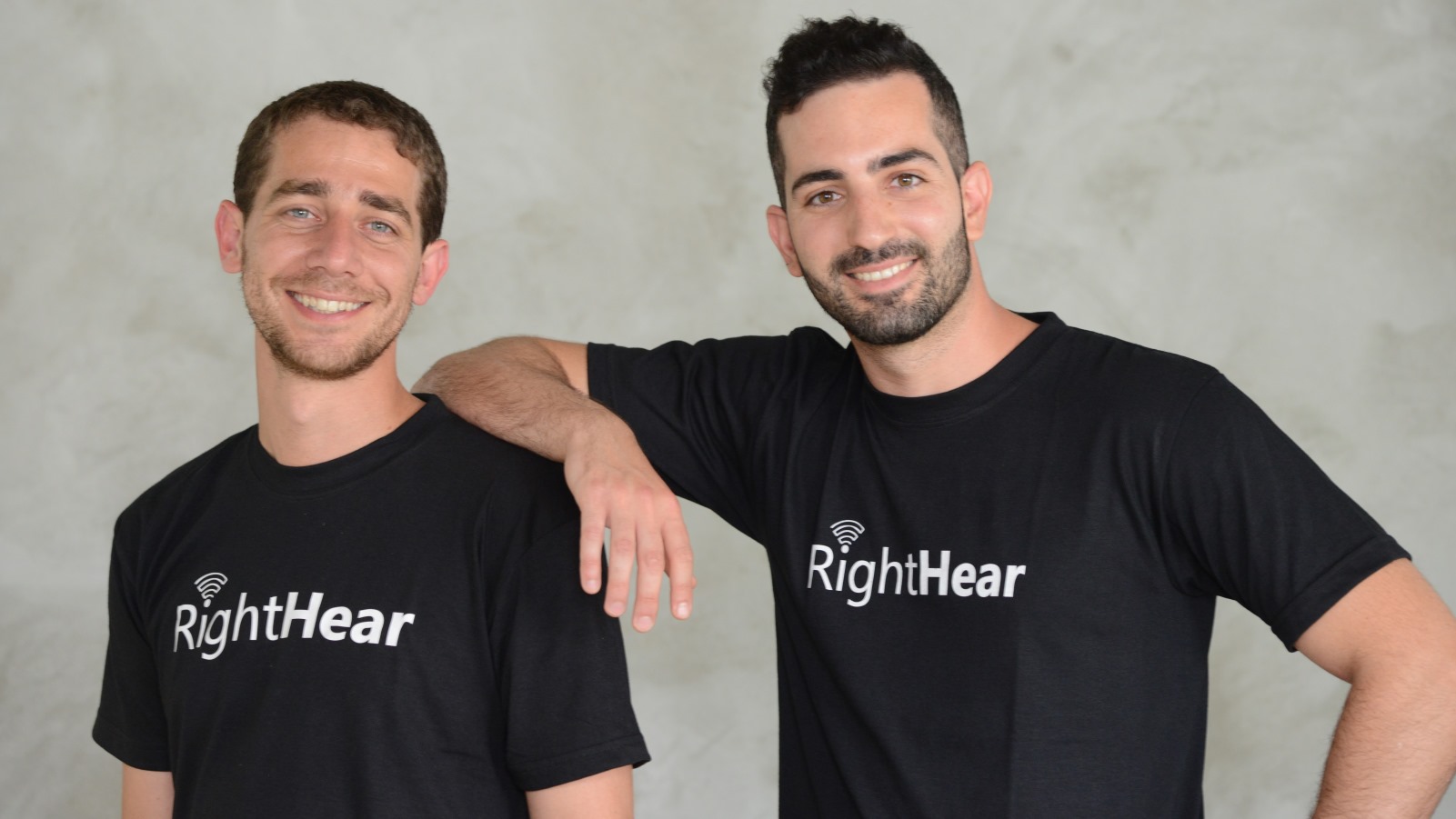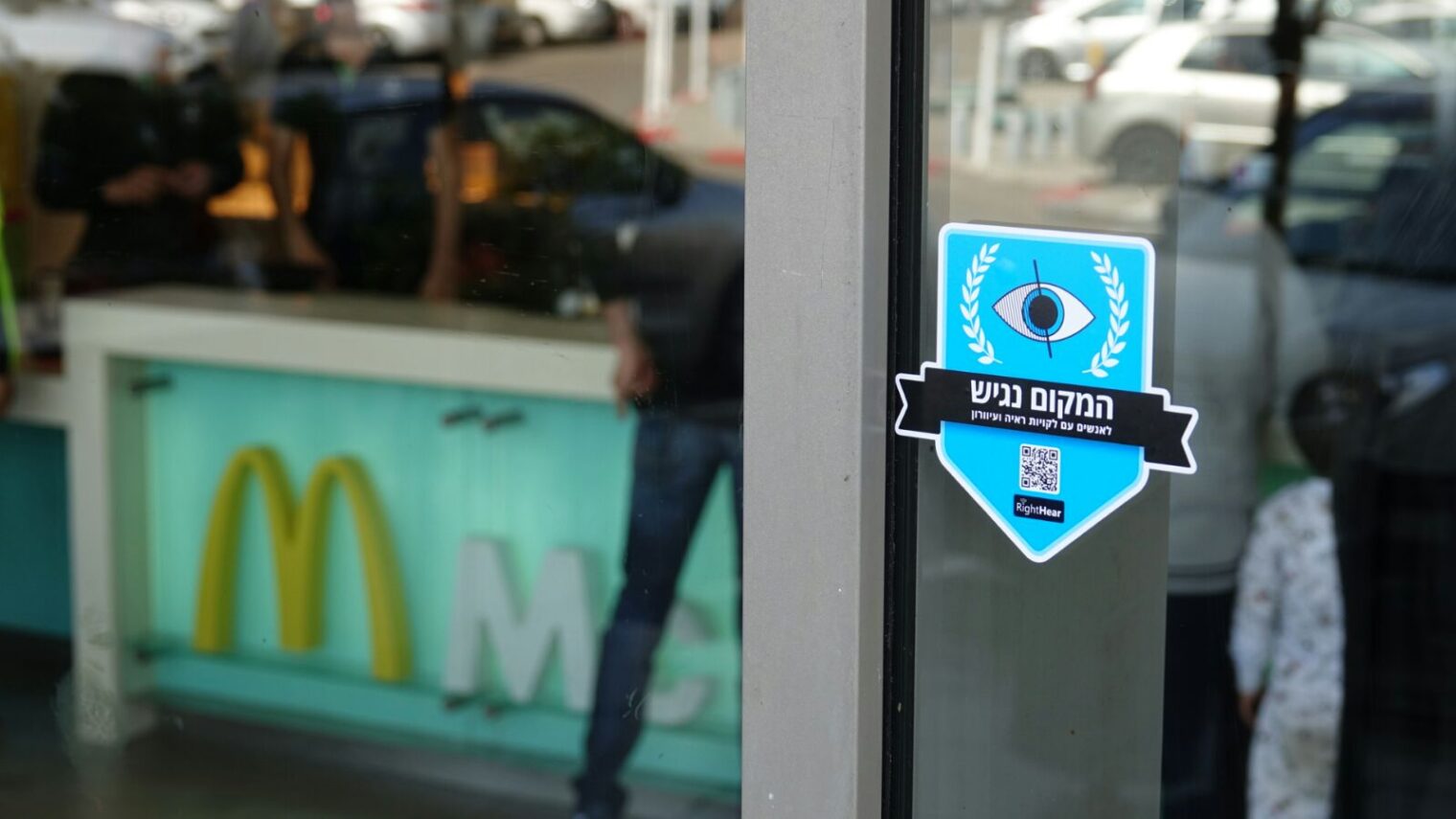An Israeli application already helping people with visual impairments to find their way through 1,000 large venues such as malls and airports is now providing audio orientation to Israelis in their local McDonald’s restaurant.
“When we started, we were thinking of large complex environments like malls and airports because this is where sighted people usually get lost,” says Idan Meir, cofounder and CEO of RightHear in Ra’anana.
“But we learned from user feedback that even small environments can be difficult for the blind or people with other orientation challenges. We realized we could create an impact there as well.”
Getting the RightHear system into small venues could most efficiently be accomplished by partnering with chains, leaders of the four-year-old company concluded. So about a year ago they approached McDonald’s Israel, the country’s largest burger chain.
McDonald’s agreed to pilot the system in some of its 180-plus branches throughout the country and subsequently decided to deploy it in nearly all of its restaurants in Israel.
After a seven-month trial run to be sure everything worked properly, the fast-food chain publicly announced the availability of RightHear in January – making McDonald’s Israel the first restaurant chain in the world to offer full access to customers with orientation challenges.
How it works
In each participating venue, Right-Hear installs tiny self-powered sensors near entrances, restrooms, elevators, stairs and so on.
The sensors use Bluetooth technology to communicate with the user via the free RightHear smartphone app, providing general information about the location and its accessibility, as well as 360-degree audio orientation in the surroundings.
For example, when arriving on a college campus, RightHear users might hear, “The admissions office is 100 feet ahead to the right. Hours are 9:00am to 5:00pm, Monday through Friday.”
They can also point their phone in any direction and RightHear will tell them what’s there. Through the app, users can request live assistance at the venue if they feel it’s necessary.
RightHear charges its clients a fee based on the number of accessibility spots installed. The service is free for users.
A recently released new version of the RightHear iOS and Android app allows users to use it in outdoor environments with the aid of GPS rather than sensors.
“It’s like a walking companion based on GPS,” says Meir. “While Google Maps is accessible it’s not designed for our audience in mind. Our app will tell you where you are and if you point the phone to something it will tell you what is there. Another really cool thing is our users can create their own landmarks with an audio recording, for example a bus station they go to frequently.”

Expansion outside Israel
In addition to the visually impaired and blind, the app-and-beacon system can help anyone with orientation issues including people with dementia, cognitive impairment or even language barriers or agoraphobia (anxiety in unfamiliar places).
The McDonald’s deployment is especially exciting for the RightHear team of eight because such a large swath of the population can benefit from it, Meir tells ISRAEL21c.
Right-Hear systems also are installed in many larger venues such as the Habima Theater in Tel Aviv, Azrieli shopping malls, Assuta medical centers and the Weizmann Institute of Science in Rehovot.
About 90 percent of the company’s clients are in Israel, with the rest in Europe and the United States, including three Lighthouse for the Blind facilities in Florida.
“Most of our efforts these days are going to expanding our activities in English-speaking markets, chains and large locations such as airports,” says Meir.
Will Americans soon be able to find their way around Mickey D’s using RightHear?
“I cannot disclose too much, but we are optimistic about expanding with McDonald’s in other countries and with other chains that we can’t name,” says Meir.

















